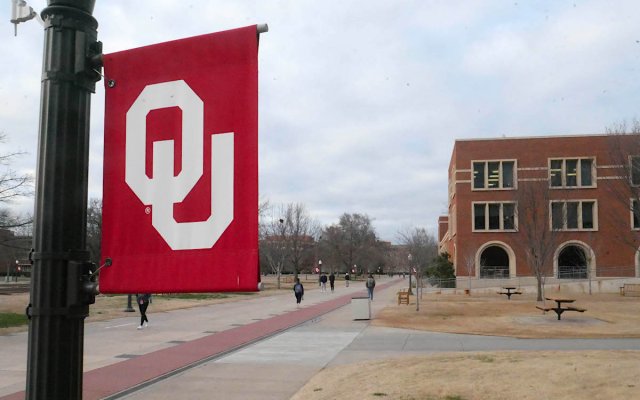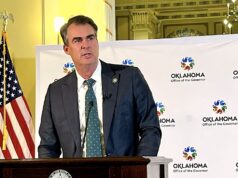
(Update: This story was updated at 9:10 a.m. Thursday, March 12, to reflect OU’s decision to move Norman-campus classes online owing to cautious over the coronavirus pandemic. It was updated again at 10:35 a.m. to reflect OSU’s similar decision.)
Owing to concerns over the coronavirus, Oklahoma’s largest universities have announced a ban on international travel and a plan to move primary-campus classes online for the two weeks following spring break.
The University of Oklahoma announced March 12 that it is “transitioning all in-person classes on the Norman campus to an online learning environment for the two-week period following Spring Break, beginning Monday, March 23 through Friday, April 3.”
OU-Tulsa and OU Health Sciences Center will continue holding in-person classes at this time, according to interim OU President Joe Harroz.
Oklahoma State University announced a similar decision about an hour later. OSU’s Stillwater and Tulsa classes will be held online March 23 through April following next week’s scheduled spring break.
Also, effective Friday, March 13, all international travel will be suspended for OSU and OU staff. State travel will still be allowed, as will essential national travel.
OSU President Burns Hargis said March 10 his campuses were considering the adjustment. Harroz released a similar message March 10 regarding the coronavirus, more specifically called COVID-19.
But two days later on March 12, Harroz announced the change at OU’s Norman campus “as a precautionary and protective measure.”
That announcement came hours after an Oklahoma City Thunder basketball game was cancelled and the NBA suspended its season owing to the preliminary COVID-19 diagnosis of a Utah Jazz player.
“Though Norman campus classes will not meet in person, the university will remain open,” Harroz said in a statement. “All non-classroom activities will continue in accordance with OU travel guidelines, and faculty and staff should report to work as usual. Employees able to temporarily perform work from home may coordinate with their managers to identify possible telecommuting opportunities.”
Harroz said all university-related events — with the possible exception of sporting events (with possible spectator limitations — have been suspended from March 14 through at least April 5.
Oklahoma’s second COVID-19 case was diagnosed in Tulsa County earlier Tuesday. The infected person reportedly traveled to Italy, a country that has been heavily affected by the global outbreak.
Several universities around the country have previously announced the cancellation of classes owing to the coronavirus’ presumed spread.
The situation is also affecting Oklahoma’s economy.
Background on the coronavirus
More specifically called COVID-19, the coronavirus originated in the Wuhan province of China in late 2019. The virus has spread around the world, with reported cases on every continent. In America, the worst initial outbreak occurred in the state of Washington where multiple people died at a nursing home.
According to World Health Organization tracking, more than 470 cases have been confirmed in the U.S. so far compared to more than 9,000 cases in Italy and more than 80,000 cases in China.
COVID-19, one in a family of viruses that affect humans and other animals, causes severe respiratory issues that have higher morbidity rates among seniors and those with other illnesses or weakened immune systems.
Oklahoma Commissioner of Health Gary Cox said Monday that anyone who believes they may have symptoms of the coronavirus should call their regular health care provider.
“Tell them you’re having symptoms, and they will give [you] instructions on precautions to take,” Cox said.
He offered best-practice suggestions for the public.
“Wash your hands often, and certainly don’t be around people that are sick or ill — social distancing, six or seven feet from someone that is ill,” Cox said. “Just common sense precautions, getting plenty of rest and healthy diets. Those are things that would protect us from colds, seasonal flu and COVID-19, for that matter.”





















